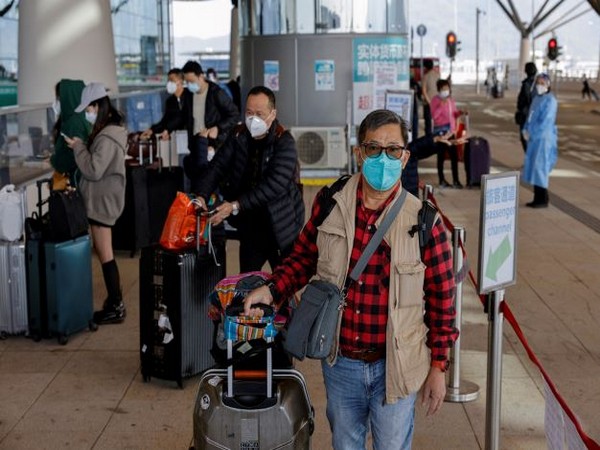Amid a surge in COVID-19 cases in the country, China on Monday announced an end to the coronavirus quarantine rule for inbound travellers from January 8, reported Reuters.
The National Health Commission scrapped the rule which had been in place since the start of the pandemic three years ago. China’s management of COVID-19 will also be downgraded to the less strict Category B from the current top-level Category A, the health authority said in a statement.
However, travellers will still require a negative polymerase chain reaction (PCR) test to enter the country, reported Reuters.
Further, the National Health Commission also stopped announcing daily Covid-19 cases on Sunday, and passed the baton to a disease control agency, a practice more in line with the management of lower-level infectious diseases.
Authorities will also no longer refer to Covid-19 as a form of pneumonia.
While Covid-19 has always been a category B infectious disease in China – a class that also includes HIV, viral hepatitis and H7N9 bird flu – authorities have managed it as category A, empowering local governments to impose strong measures such as lockdowns, isolation and quarantine.
It also allows them to enlist law enforcement to aid with disease control.
Meanwhile, cases have surged since China largely dismantled its zero-tolerance policy towards the coronavirus in recent weeks, inducing nationwide shortages of test kits and medication.
The intensity and magnitude of the country’s first nationwide outbreak have remained largely a mystery as official figures from the central government remain low, reported The New York Times (NYT).
The government has a narrow definition of which deaths should count as caused by Covid. Anecdotal evidence, like social media postings of hospital morgues overcrowded with body bags, is quickly taken down by censors.
Now, a picture is emerging of the virus spreading like wildfire. One province and three cities have reported Covid estimates far exceeding official tallies in recent days, reported NYT.
At a news conference on Sunday, an official in Zhejiang Province, home to 65 million people, estimated that daily Covid cases there had exceeded one million.
In the eastern city of Qingdao, population 10 million, a health minister said on Friday that there were roughly half a million new cases each day, a number he expected would rise sharply in the coming days, local news sites reported.
In Dongguan, a city of seven million in central Guangdong Province, a city health commission report on Friday estimated between 250,000 and 300,000 new cases daily.
And in northwestern Shaanxi Province, officials in Yulin, a city of roughly 3.6 million people, logged 157,000 infected on Friday, with models estimating that more than a third of the city’s population had already been infected, according to local media.
These numbers contrast sharply with those from China’s national health commission, which on Friday reported about 4,000 Covid cases for the entire country, reported NYT.
Health experts and state media outlets have downplayed Covid’s severity, focusing on stories of recovery rather than of severe illness. The result has been a one-sided presentation of an outbreak that some experts believe could cause over a million deaths in the coming few months.
Notably, the Communist Party has cast aside the restrictive “zero Covid” policy, which set off mass protests that were a rare challenge to the Communist leadership.
Meanwhile, there is a shortage of medicine, as Covid rips through parts of China, millions are struggling to find treatment — from the most basic cold remedies to take at home to more powerful antivirals for patients in hospitals.
Gripped with grief and anxiety, many in China want a national reckoning over the hard-line Covid policy. Holding the government accountable may be a quixotic quest, reported NYT.
Despite Beijing’s assurances that the situation is under control, data on infections has become more opaque amid loosened pandemic constraints. As Covid sweeps across the Chinese capital, Beijing looks like a city in the throes of a lockdown — this time, self-imposed by residents.
China has acknowledged only seven deaths from Covid in the past two weeks and a few thousand new cases daily, which health experts call a vast undercount, reported NYT. (ANI)








